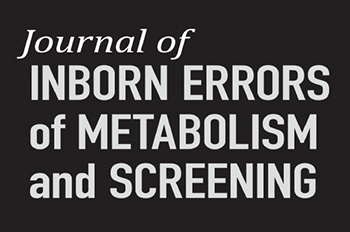Janet Thomas
University of Colorado School of Medicine, Aurora, CO, USAUniversity of Colorado School of MedicineUSAAurora, CO, USAUniversity of Colorado School of Medicine, Aurora, CO, USA
Declaration of Conflicting Interests
The author(s) declared the following potential conflicts of interest with respect to the research, authorship, and/or publication of this article: Janet Thomas, MD, has served as an advisory board member and has received clinical trial support from BioMarin Pharmaceutical Inc. Mina Nguyen-Driver, PsyD, has served as a neuropsychology advisory board member and has received consulting fees from BioMarin Pharmaceutical Inc. Heather Bausell, RD, LDN, has served as an advisory board member and received consulting fees from BioMarin Pharmaceutical Inc. Jane Breck, MD, has served as an advisory board member and received consulting fees from BioMarin Pharmaceutical Inc. Javier Zambrano, MD, and Vanessa Birardi, PharmD, are employees and stockholders of BioMarin Pharmaceutical Inc.
Mina Nguyen-Driver
Oregon Health & Science University, Portland, OR, USAOregon Health & Science UniversityUSAPortland, OR, USAOregon Health & Science University, Portland, OR, USA
Declaration of Conflicting Interests
The author(s) declared the following potential conflicts of interest with respect to the research, authorship, and/or publication of this article: Janet Thomas, MD, has served as an advisory board member and has received clinical trial support from BioMarin Pharmaceutical Inc. Mina Nguyen-Driver, PsyD, has served as a neuropsychology advisory board member and has received consulting fees from BioMarin Pharmaceutical Inc. Heather Bausell, RD, LDN, has served as an advisory board member and received consulting fees from BioMarin Pharmaceutical Inc. Jane Breck, MD, has served as an advisory board member and received consulting fees from BioMarin Pharmaceutical Inc. Javier Zambrano, MD, and Vanessa Birardi, PharmD, are employees and stockholders of BioMarin Pharmaceutical Inc.
Heather Bausell
Ann & Robert H. Lurie Children’s Hospital of Chicago, Chicago, IL, USAAnn & Robert H. Lurie Children’s Hospital of ChicagoUSAChicago, IL, USAAnn & Robert H. Lurie Children’s Hospital of Chicago, Chicago, IL, USA
Declaration of Conflicting Interests
The author(s) declared the following potential conflicts of interest with respect to the research, authorship, and/or publication of this article: Janet Thomas, MD, has served as an advisory board member and has received clinical trial support from BioMarin Pharmaceutical Inc. Mina Nguyen-Driver, PsyD, has served as a neuropsychology advisory board member and has received consulting fees from BioMarin Pharmaceutical Inc. Heather Bausell, RD, LDN, has served as an advisory board member and received consulting fees from BioMarin Pharmaceutical Inc. Jane Breck, MD, has served as an advisory board member and received consulting fees from BioMarin Pharmaceutical Inc. Javier Zambrano, MD, and Vanessa Birardi, PharmD, are employees and stockholders of BioMarin Pharmaceutical Inc.
Jane Breck
Children’s Hospital of Pittsburgh of UPMC, Pittsburgh, PA, USAChildren’s Hospital of Pittsburgh of UPMCUSAPittsburgh, PA, USAChildren’s Hospital of Pittsburgh of UPMC, Pittsburgh, PA, USA
Declaration of Conflicting Interests
The author(s) declared the following potential conflicts of interest with respect to the research, authorship, and/or publication of this article: Janet Thomas, MD, has served as an advisory board member and has received clinical trial support from BioMarin Pharmaceutical Inc. Mina Nguyen-Driver, PsyD, has served as a neuropsychology advisory board member and has received consulting fees from BioMarin Pharmaceutical Inc. Heather Bausell, RD, LDN, has served as an advisory board member and received consulting fees from BioMarin Pharmaceutical Inc. Jane Breck, MD, has served as an advisory board member and received consulting fees from BioMarin Pharmaceutical Inc. Javier Zambrano, MD, and Vanessa Birardi, PharmD, are employees and stockholders of BioMarin Pharmaceutical Inc.
Javier Zambrano
BioMarin Pharmaceutical Inc, Novato, CA, USABioMarin Pharmaceutical IncUSANovato, CA, USABioMarin Pharmaceutical Inc, Novato, CA, USA
Declaration of Conflicting Interests
The author(s) declared the following potential conflicts of interest with respect to the research, authorship, and/or publication of this article: Janet Thomas, MD, has served as an advisory board member and has received clinical trial support from BioMarin Pharmaceutical Inc. Mina Nguyen-Driver, PsyD, has served as a neuropsychology advisory board member and has received consulting fees from BioMarin Pharmaceutical Inc. Heather Bausell, RD, LDN, has served as an advisory board member and received consulting fees from BioMarin Pharmaceutical Inc. Jane Breck, MD, has served as an advisory board member and received consulting fees from BioMarin Pharmaceutical Inc. Javier Zambrano, MD, and Vanessa Birardi, PharmD, are employees and stockholders of BioMarin Pharmaceutical Inc.
Vanessa Birardi
BioMarin Pharmaceutical Inc, Novato, CA, USABioMarin Pharmaceutical IncUSANovato, CA, USABioMarin Pharmaceutical Inc, Novato, CA, USA
Declaration of Conflicting Interests
The author(s) declared the following potential conflicts of interest with respect to the research, authorship, and/or publication of this article: Janet Thomas, MD, has served as an advisory board member and has received clinical trial support from BioMarin Pharmaceutical Inc. Mina Nguyen-Driver, PsyD, has served as a neuropsychology advisory board member and has received consulting fees from BioMarin Pharmaceutical Inc. Heather Bausell, RD, LDN, has served as an advisory board member and received consulting fees from BioMarin Pharmaceutical Inc. Jane Breck, MD, has served as an advisory board member and received consulting fees from BioMarin Pharmaceutical Inc. Javier Zambrano, MD, and Vanessa Birardi, PharmD, are employees and stockholders of BioMarin Pharmaceutical Inc.
